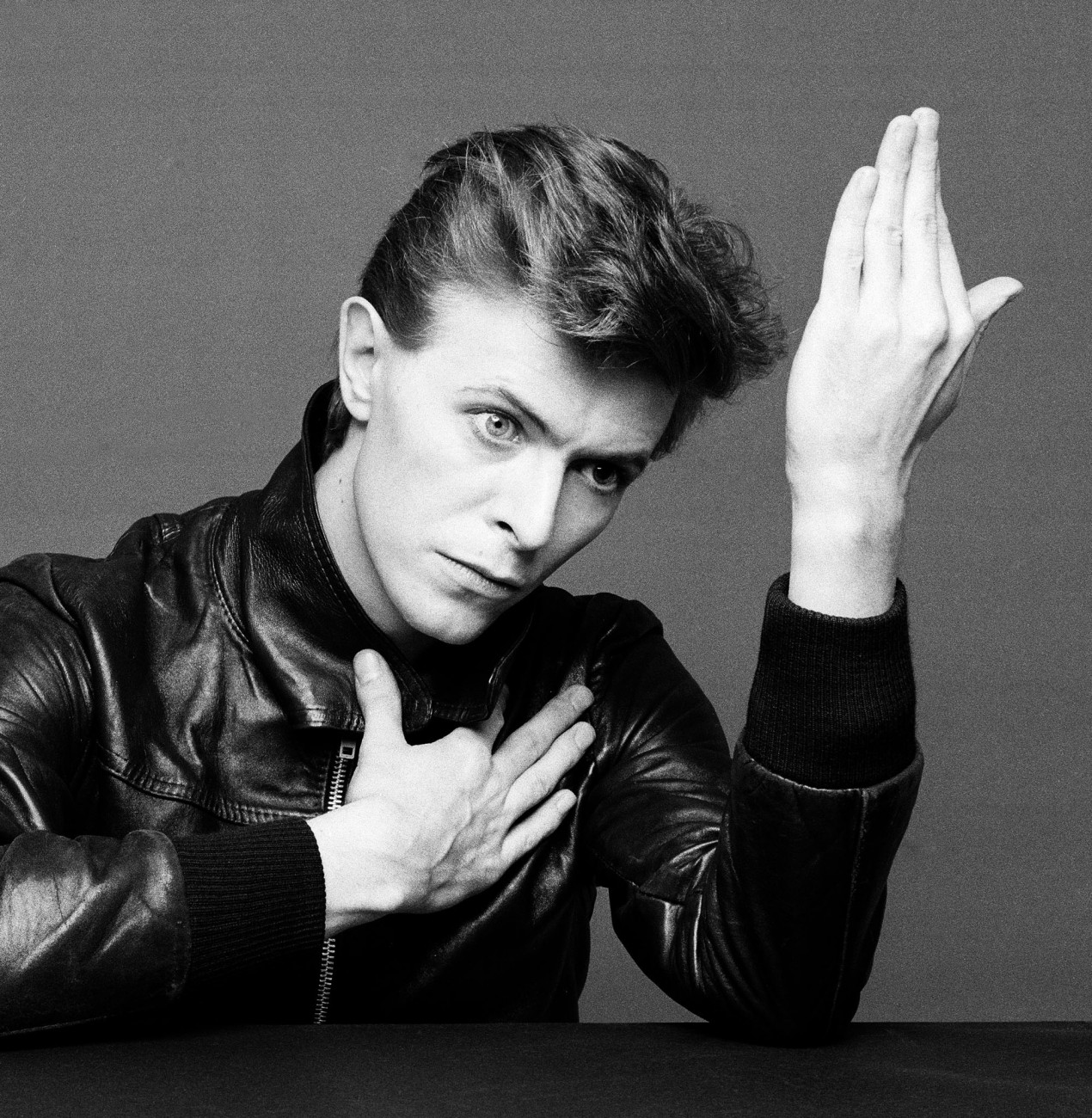https://www.youtube.com/watch?v=jBuwC4VJi50
In a scene irrefutably amongst the most defining filmic representations of Berlin, Natja Brunckhorst, as Christiane F, and her posse of drug-addled delinquents bound recklessly through the gloomy arcades of Charlottenburg’s Europa Center, tumbling headlong through the carefree ephemerality of youth. Revered to the present day, it is a timeless moment of cinema, only proven its near-reproduction in Gucci’s recently revealed SS16 campaign. Yet its lynchpin lies not in its cinematographic execution, but rather in it’s musical accompaniment.
I, I will be king
And you, you will be queen
Though nothing will drive them away
We can be Heroes, just for one day
We can be us, just for one day
“Heroes” – David Bowie, 1977
Against an unwavering backdrop of tragedy and turbulence, Bowie’s lyrics pay poignant homage to the defiant innocence of Christiane and Detlef’s star-crossed love, a bold refuge from the otherwise abject desolation of their existences. As they insubordinately scale the rooftops of inequality, destitution and darkness hand in hand, a harmony of language, image and sound proves the transcendent power of the perfect moment.
 via Brian Duffy
via Brian Duffy
Bowie’s integrity to the cult success of Wir Kinder vom Bahnhof Zoo represents but the epidermis of his impact on the creative culture and heritage of Berlin, the city in which he spent 1976-79. His years spent here were amongst his most formative, bringing about a complete aesthetic renovation and facilitating the production of what is considered some of his best work. During his time here, Bowie ran with the cream of the era’s musical crop, collaborating with the near-deified composer Brian Eno on his album, ‘Heroes’, the title track of which is frequently listed amongst the greatest songs of all time, and living at Hauptstraße 155 in Schöneberg, the same building as Iggy Pop, both of whom had moved to the city following rough spells in Los Angeles. As previously mentioned, Berlin’s influence on Bowie’s visual idiosyncrasy and performativity was pronounced, marked by the shedding of the glitter, flamboyance and drama of previous personas. On the album cover of ‘Heroes’, he appears gently quiffed and adorned in a black leather jacket, hands raised before his face in a manner both statuesque and stern. Never before had an artist so keenly tapped into the quintessence of a city’s character, proving a powerful yet humble testament to Berlin: brazen, unpretentious, nude.
As previously mentioned, Berlin’s influence on Bowie’s visual idiosyncrasy and performativity was pronounced, marked by the shedding of the glitter, flamboyance and drama of previous personas. On the album cover of ‘Heroes’, he appears gently quiffed and adorned in a black leather jacket, hands raised before his face in a manner both statuesque and stern. Never before had an artist so keenly tapped into the quintessence of a city’s character, proving a powerful yet humble testament to Berlin: brazen, unpretentious, nude. Dear as Berlin may have been to Bowie, to speak of him without expressly referencing his mastery of the multi-persona would be a shameful oversight. Exhibiting metamorphic capacities far surpassing chameleonic, he stood at the vanguard of progressive sexual politics, acting as a standard-bearer for the queering of fashion’s rigidly gendered expressive potential, exerting an influence that makes itself felt as strongly, if not stronger, today than it did in decades before. Amongst a plethora of characters were the Thin White Duke, Aladdin Sane, with his iconic lightening-bolt make-up, and perhaps most memorable of all, his precursor, Ziggy Stardust, Bowie’s bisexual alien character, archetypal, yet subtly mocking, of the contemporary rock star. Bowie’s musical prodigy, across the breadth of his personas, needs no acclaim or justification; it speaks for itself. Yet in the case of Ziggy Stardust, Bowie proved himself to be just as apt a revolutionary in fashion as in music, performing fashion in a manner that entirely deconstructed established conventions of dress and self-presentation, as well as calling attention fashion’s utility as a fully integrated means of communication and creative expression. A particular favourite of Bowie’s was the work of Kansai Yamamoto, examples of which have since been eternalised in the work of Japanese photographer Masayoshi Sukita. In his wearing of Yamamoto’s designs, Stardust injected a previously unknown other-worldliness into contemporary fashion, transcending gender, time and space. Indeed, Bowie’s obsession with that which lies beyond the immediately palpable, revealed by a quick glance at a range of his song titles, is what allowed him eternal relevancy; he dwells not in one era or another, but in a realm untouchable by the rationale of temporal categorisation.
Dear as Berlin may have been to Bowie, to speak of him without expressly referencing his mastery of the multi-persona would be a shameful oversight. Exhibiting metamorphic capacities far surpassing chameleonic, he stood at the vanguard of progressive sexual politics, acting as a standard-bearer for the queering of fashion’s rigidly gendered expressive potential, exerting an influence that makes itself felt as strongly, if not stronger, today than it did in decades before. Amongst a plethora of characters were the Thin White Duke, Aladdin Sane, with his iconic lightening-bolt make-up, and perhaps most memorable of all, his precursor, Ziggy Stardust, Bowie’s bisexual alien character, archetypal, yet subtly mocking, of the contemporary rock star. Bowie’s musical prodigy, across the breadth of his personas, needs no acclaim or justification; it speaks for itself. Yet in the case of Ziggy Stardust, Bowie proved himself to be just as apt a revolutionary in fashion as in music, performing fashion in a manner that entirely deconstructed established conventions of dress and self-presentation, as well as calling attention fashion’s utility as a fully integrated means of communication and creative expression. A particular favourite of Bowie’s was the work of Kansai Yamamoto, examples of which have since been eternalised in the work of Japanese photographer Masayoshi Sukita. In his wearing of Yamamoto’s designs, Stardust injected a previously unknown other-worldliness into contemporary fashion, transcending gender, time and space. Indeed, Bowie’s obsession with that which lies beyond the immediately palpable, revealed by a quick glance at a range of his song titles, is what allowed him eternal relevancy; he dwells not in one era or another, but in a realm untouchable by the rationale of temporal categorisation. Given his going beyond being a ‘polymath’, rendering appropriate justice to the gravity of Bowie’s importance with the prescriptive terms that language necessitates is impossible. In his passing, earth has lost one of the greatest stars to ever have brightened its shores. Yet solace can be taken in the firm knowledge that, though it may be from afar, his is one that will burn ardently now and forever more; his influence, impact and inspiration are unquantifiable, incomparable and, above all, unforgettable. Rest In Peace, Starman.
Given his going beyond being a ‘polymath’, rendering appropriate justice to the gravity of Bowie’s importance with the prescriptive terms that language necessitates is impossible. In his passing, earth has lost one of the greatest stars to ever have brightened its shores. Yet solace can be taken in the firm knowledge that, though it may be from afar, his is one that will burn ardently now and forever more; his influence, impact and inspiration are unquantifiable, incomparable and, above all, unforgettable. Rest In Peace, Starman.
https://www.youtube.com/watch?v=oAo7YeRkJYo
All images, unless otherwise credited, via Masayoshi Sukita




